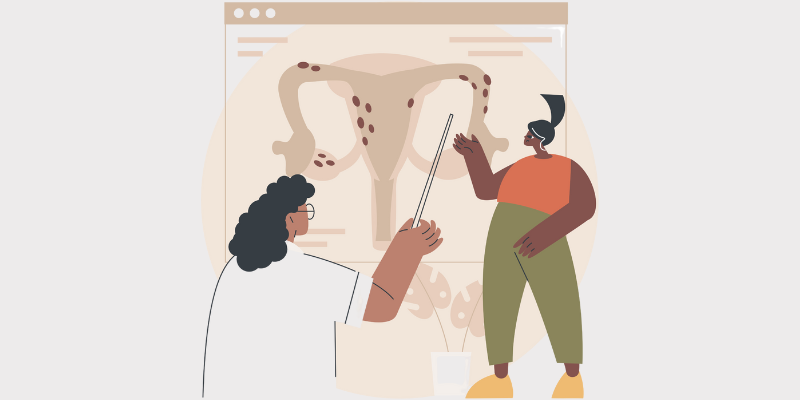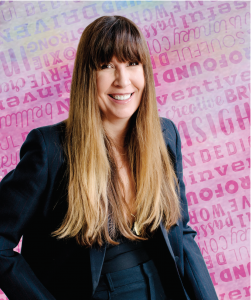By Sue Sveum
If you’ve experienced cramps or irregular periods from time to time, you’re not alone. But if these symptoms change or worsen over time — especially if you’re also having difficulty becoming pregnant — your symptoms may not be normal. A couple of the most common reproductive disorders affecting women are endometriosis and polycystic ovary syndrome (PCOS). Two local health care providers break down the differences, who’s at risk and how they’re treated.
ABOUT ENDOMETRIOSIS
“Endometriosis is a condition where endometrial (or uterine lining) tissue is found outside of the uterus,” explains Dr. Daniel Pellicer, MD, an OB/GYN at SSM Health. “This tissue grows and bleeds due to hormones produced by the ovaries, causing a variety of symptoms.”
These include:
- very painful periods
- chronic abdominal or pelvic pain
- painful sex
- infertility
Occurring in roughly 10% of reproductive-aged women, endometriosis is somewhat of a mystery in terms of its cause — but risk factors include a family history of the disease, taller height and lower weight — as well as uterine or cervical conditions that disrupt the normal menstrual flow.
While there’s no cure, Pellicer says endometriosis can be managed with birth control pills or other hormonal medications. It can also be treated surgically — especially in women wanting to become pregnant — by removing endometriosis lesions or endometriomas (collections of blood and endometriosis fluid) from the abdomen or pelvis.
“If you have extremely painful periods that aren’t manageable with over-the-counter medications, or have chronic pelvic pain between periods, painful sex or difficulty getting pregnant (after one year of trying if younger than 35, or six months if older than 35), these could be signs that your symptoms aren’t just part of a normal period,” explains Pellicer. “You should see your doctor to discuss symptoms further.”
PCOS LOWDOWN
Like endometriosis, polycystic ovary syndrome (PCOS), is an incurable — but treatable — disorder affecting women of reproductive age. Both adversely affect a woman’s ability to become pregnant — but otherwise, they’re very different. The U.S. Department of Health & Human Services Office on Women’s Health reports that between 5 and 10% of women between the ages of 15 and 44 have PCOS.
If you’ve experienced cramps or irregular periods from time to time, you’re not alone. But if these symptoms change or worsen over time … your symptoms may not be normal.
“PCOS is a hormone-related condition that causes irregular menstrual periods due to elevated levels of testosterone and inconsistent monthly ovulation,” explains Dr. Ashley Woyak, doctor of chiropractic and naturopathic medicine, with Forward Natural Medicine.
Pellicer adds that if a woman goes more than three months without a period and isn’t pregnant, that might be a sign that she has a condition causing irregular periods — like PCOS.
Other common symptoms of PCOS include:
- fewer than eight periods a year
- growing thick, dark hair on the upper lip, chin,
- sideburn area, chest or belly facial acne, oily skin or pimples
- hair loss
- weight gain
- blood sugar problems
- infertility
Women who are overweight, obese, or have a family history of PCOS or diabetes, are typically at higher risk. And women of African American or Hispanic heritage also have an increased likelihood of developing PCOS, according to Woyak.
Using a naturopathic approach, she says treatment decisions all start with comprehensive lab work and care is based on symptoms and lab findings — including dietary modifications, supplementation, IV therapy and possible medication recommendations.
“Every patient is unique,” stresses Woyak. “Treatment won’t be the same for everyone – but the most common therapy is taking birth control pills. [These] won’t cure PCOS, but can improve many symptoms — like irregular periods, acne and facial hair.”
Pellicer agrees, adding, “Treatment often depends on whether you’re hoping to get pregnant. If not, hormonal birth control is very helpful — but if you’re having irregular periods and want to get pregnant, you may be prescribed medications to help you ovulate.”
Other therapies include anti-androgen medications such as spironolactone that block testosterone, or metformin, a diabetes medication that helps regulate your periods. And if you’re overweight, Woyak says losing even 5% of your body weight can improve many of your symptoms.
“Our goal is to always treat as naturally as possible,” she explains. “But we understand the importance of incorporating both alternative and traditional practices to get the best outcome for each patient.”




